《携手构建网络空间命运共同体》概念文件(双语全文)
世界互联网大会官网 2019-10-17 14:38

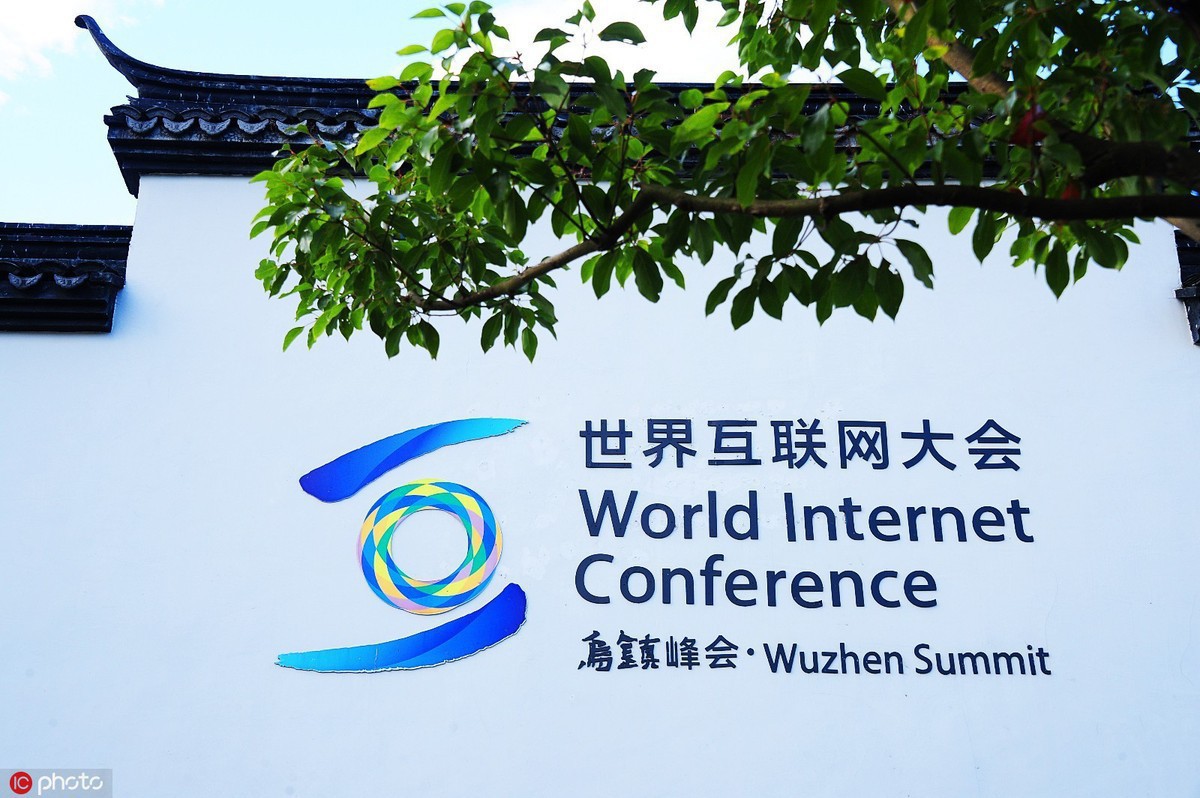
携手构建网络空间命运共同体
Jointly Build a Community with a Shared Future in Cyberspace
世界互联网大会组委会
Organizing Committee of the World Internet Conference
序 言
Preface
2015年,中国国家主席习近平在第二届世界互联网大会首次提出“构建网络空间命运共同体”理念,深入阐释互联网发展治理“四项原则”“五点主张”,得到国际社会广泛关注和普遍认同,已经成为世界互联网大会永久主题。构建网络空间命运共同体,是人类命运共同体理念在网络空间的具体体现和重要实践,彰显了对人类共同福祉的高度关切,反映了国际社会的共同期待,为推动全球互联网发展治理贡献了中国智慧、中国方案。
Chinese President Xi Jinping unveiled the vision of building a community with a shared future in cyberspace at the second World Internet Conference in 2015. At the conference, President Xi elaborated on the four principles and made a five-point proposal concerning Internet development and governance. The vision has drawn the attention and recognition of the world and become a permanent theme of the World Internet Conference. Building a community with a shared future in cyberspace is an embodiment and major practice of the vision of building a community with a shared future for mankind and a manifestation of our great interest in the common well-being of humanity and shared aspiration of the international community. We have contributed China's wisdom and approach to the development and global governance of Internet.
《携手构建网络空间命运共同体》积极回应各方期待,全面阐释“构建网络空间命运共同体”理念的时代背景、基本原则、实践路径和治理架构,倡议国际社会携手合作,共谋发展福祉,共迎安全挑战,把网络空间建设成造福全人类的发展共同体、安全共同体、责任共同体、利益共同体。
In response to the expectations of all parties, Jointly Build a Community with a Shared Future in Cyberspace fully expounds on the background, fundamental principles, path to realization, and governance framework of the vision of building a community with a shared future in cyberspace. It calls on the international community to work together to promote development, address security challenges, and build cyberspace into a community where we can jointly advance development, safeguard security, participate in governance, and share the benefits.
互联网发展日新月异,构建网络空间命运共同体必须与时俱进。欢迎各方持续为丰富发展“构建网络空间命运共同体”理念贡献智慧力量,携手开创全人类更加美好的未来!
As the Internet is developing at an amazing speed, the endeavor to build a community with a shared future in cyberspace must also move forward with the times. We encourage all parties to continue contributing their insights and efforts to enriching and developing this vision, and join hands to create an even brighter future for all human beings.
——世界互联网大会组委会
2019年10月
Organizing Committee of the World Internet Conference
October 2019
当今时代,互联网发展日新月异,极大拓展了人类生产生活空间,网络空间已成为人类共同的新家园,让国际社会越来越成为你中有我、我中有你的命运共同体。各国人民在网络空间休戚与共、利益攸关,国际社会应加强沟通、扩大共识、深化合作,坚持共商共建共享的全球治理观,坚持全球事务由各国人民商量着办,携手构建网络空间命运共同体,让互联网发展成果更好造福人类。
The Internet today is growing at an incredible speed in ways that have enormously expanded people's work and living spaces. Cyberspace has become a new homeland for human beings, a place where all countries are getting increasingly interdependent, and a community of intertwined interests and shared future. It is therefore imperative for the international community to strengthen communication, broaden consensus, deepen cooperation, and embrace extensive consultation, joint contribution and shared benefits in global governance. On matters that involve us all, we should discuss and look for a solution together. We should work hand in hand to build a community with a shared future in cyberspace where the Internet can deliver greater benefits to all the people.
一、时代背景
Background
当今世界正处在大发展大变革大调整时期,新一轮科技革命和产业革命正在孕育成长,新兴市场国家和发展中国家快速崛起,互联网的迅猛发展给人类文明进步带来了千载难逢的发展机遇。
Today's world is undergoing major development, adjustment and transformation. A new round of technological and industrial revolution is gaining momentum. Emerging markets and developing countries are rising rapidly. The exponential growth of the Internet has created an unprecedented opportunity for the progress of human civilization.
同时,互联网领域发展不平衡、规则不健全、秩序不合理等问题日益凸显。网络空间霸权主义、强权政治依然存在,保护主义、单边主义不断抬头,不同国家和地区之间数字鸿沟不断拉大,世界范围内侵犯个人隐私、侵犯知识产权、推行种族主义、散布虚假信息、实施网络诈骗、网络恐怖主义活动等违法犯罪行为已成为全球公害。
In the meantime, such problems as unbalanced development, inadequate rules and inequitable order have become more evident in the field of the Internet. Hegemony and power politics persist in cyberspace. Protectionism and unilateralism keep rearing their heads. The digital divide among countries and regions is widening. Privacy infringements, intellectual property rights violations, the rise of racism, spread of disinformation, Internet fraud, cyberterrorism and other illegal and criminal activities have become a global scourge.
面对互联网带来的机遇和挑战,国际社会致力于利用好、发展好、治理好互联网,为此作出了不懈努力。中国既是全球互联网发展的重要受益者,也始终是国际网络空间和平的建设者、发展的贡献者、秩序的维护者。中国作为负责任的互联网大国,始终不渝走和平发展道路,奉行互利共赢的开放战略,倡导维护各国在网络空间的主权、安全和发展利益,积极参与网络空间国际治理进程,不断深化网络空间国际对话交流,依托共建“一带一路”等分享发展经验、推动务实合作,成功搭建世界互联网大会等平台,为国际社会凝聚共识和探索实践发挥了积极作用,推动全球互联网治理朝着更加公正合理的方向迈进。
In the face of these opportunities and challenges, the international community is committed to improving the use, development, and governance of the Internet and has made tireless efforts toward this end. China has not only benefited significantly from the global Internet development, but also made unremitting efforts to safeguard peace, promote development and maintain order in cyberspace. As a responsible major country of Internet development, China is always committed to the path of peaceful development and an open-up strategy featuring mutual benefits and win-win results. China advocates safeguarding sovereignty, security and development interests of all countries in cyberspace and has taken an active part in the process of global governance in cyberspace. China continues to promote international dialogues and exchanges in cyberspace and has engaged in experience sharing and practical cooperation through the Belt and Road Initiative. Through the World Internet Conference and other platforms that have been successfully built, China is playing an active role in building consensus and exploring good practices, so as to promote fairer and more equitable global Internet governance.
构建网络空间命运共同体,就是要把网络空间建设成造福全人类的发展共同体、安全共同体、责任共同体、利益共同体。我们倡议世界各国政府和人民顺应信息时代潮流,把握数字化、网络化、智能化发展契机,积极应对网络空间风险挑战,实现发展共同推进、安全共同维护、治理共同参与、成果共同分享。
To build a community with a shared future in cyberspace is to make cyberspace a community where we can jointly advance development, safeguard security, participate in governance, and share the benefits. We call on the governments and people of all countries to follow the trend of the information age, seize the opportunities offered by digital, network and smart technologies, and tackle risks and challenges in cyberspace proactively, so that we can achieve shared development, ensure common security, realize joint governance, and enjoy benefits together.
二、基本原则
Fundamental Principles
构建网络空间命运共同体,应坚持以下原则:
To build a community with a shared future in cyberspace, the following principles should be upheld:
1.尊重网络主权。《联合国宪章》确立的主权平等原则是当代国际关系的基本准则,同样适用于网络空间。网络主权是国家主权在网络空间的自然延伸,应尊重各国自主选择发展道路、治理模式和平等参与网络空间国际治理的权利。各国有权根据本国国情,借鉴国际经验,制定有关网络空间的公共政策和法律法规。任何国家都不搞网络霸权,不利用网络干涉他国内政,不从事、纵容或支持危害他国国家安全的网络活动,不侵害他国信息基础设施。
Respecting sovereignty in cyberspace. The principle of sovereign equality enshrined in the Charter of the United Nations is a basic norm governing contemporary international relations. It covers all aspects of state-to-state relations, and should likewise apply to cyberspace. Sovereignty in cyberspace is a natural extension of the national sovereignty in cyberspace. We should respect the right of each country to independently choose its own development path and governance model, and to participate in global governance in cyberspace on an equal footing. All countries have the right to formulate public policies, laws and regulations relating to cyberspace based on their own national contexts by drawing on experience of other countries. No country should pursue Internet hegemony, or use the Internet to interfere in another country’s internal affairs. No country should engage in, condone or support cyber activities that endanger other countries' national security, or sabotage their information infrastructure.
2.维护和平安全。实现网络空间的安全稳定,事关人类的共同福祉。各国应维护以联合国为核心的国际体系,遵守《联合国宪章》宗旨与原则,尊重彼此在网络空间的安全利益和重大关切。各国应反对网络空间敌对行动和侵略行径,防止网络空间军备竞赛,防范网络空间军事冲突,坚持以和平方式解决网络空间争端。反对将网络安全问题政治化。各方应摒弃冷战思维、零和博弈、双重标准和贸易保护主义、单边主义,反对网络攻击和大规模监控,反对国家间无端的网络攻击指责,致力于共同维护网络空间的和平与安全。
Upholding peace and security. A secure and stable cyberspace bears on the shared well-being of humanity. All countries should uphold the international system with the UN as its core, observe the purposes and principles of the UN Charter and respect each other's security interests and major concerns in cyberspace. Countries should oppose hostile activities and acts of aggression, prevent arms race and military conflict in cyberspace, and remain committed to resolving disputes by peaceful means. Countries should oppose attempts to politicize cybersecurity issues. Countries should abandon the Cold War mentality, zero sum games, double standards, trade protectionism and unilateralism, and oppose cyber-attacks, large-scale surveillance operations and unfounded accusations of cyber-attacks against other countries. Countries should make concerted efforts to maintain peace and security in cyberspace.
3.促进开放合作。开放是开展网络空间合作的前提,也是构建网络空间命运共同体的重要条件。各国应秉持开放理念,奉行开放政策,丰富开放内涵,提高开放水平,共同推进网络空间健康发展。积极搭建双边、区域和国际合作平台,强化资源优势互补,维护全球协同一致的创新体系,促进不同制度、不同民族和不同文化在网络空间包容性发展。坚决反对狭隘的、封闭的小集团主义,反对利用自身优势损害别国信息通信技术产品和服务供应链安全。
Promoting openness and cooperation. Openness is a prerequisite for cooperation in cyberspace and an important condition for building a community with a shared future in cyberspace. Countries should work together for the healthy development of cyberspace with an open mind, by adopting policies of openness in more areas and at a higher level. Platforms for bilateral, regional, and international cooperation are needed to leverage the complementarity of resources and strengths. We need to maintain harmonized global innovation architecture, and encourage inclusive development among different social systems, ethnicities, and cultures in cyberspace. We should firmly reject narrow-minded and closed cliquish thinking, and oppose attempts by any country to use its own strengths to undermine the security of other countries' supply chains of ICT products and services.
4.构建良好秩序。网络空间不是法外之地,应以公认的国际法和国际关系基本准则为基础构建良好秩序。国家不分大小、强弱、贫富,都是国际社会平等成员,都有权平等参与网络空间国际规则制定。国际社会应共同管理和公平分配互联网基础资源,扩大发展中国家参与网络空间国际治理的代表性和发言权,实现网络空间资源共享、责任共担、合作共治,建立公平正义的网络空间秩序。
Building a sound order. Cyberspace is not a place beyond the rule of law, and a sound order must be established on the basis of commonly recognized international laws and basic norms governing international relations. All countries, regardless of size, strength or wealth, are equal members of the international community and are entitled to participate in cyberspace rules-making on an equal footing. The international community should jointly manage and fairly distribute basic Internet resources, increase developing countries' representation and voice in global governance in cyberspace, and work toward the cyberspace where countries can share resources, shoulder common responsibilities and exercise joint governance, in a bid to establish a just and equitable order in cyberspace.









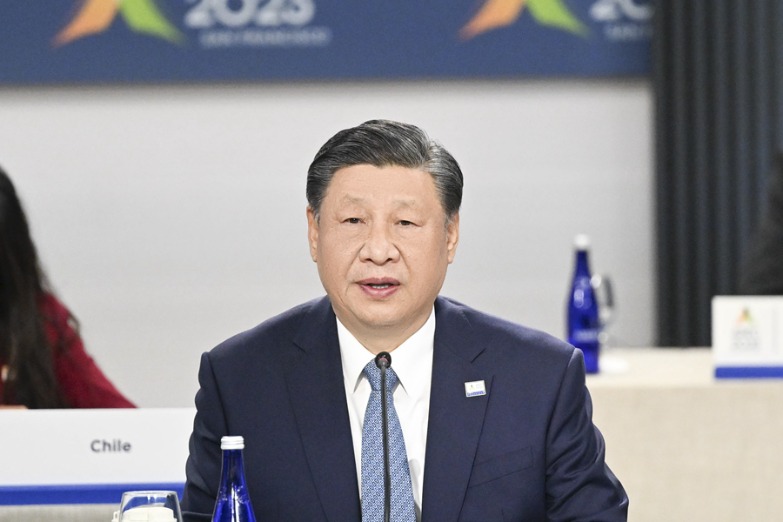

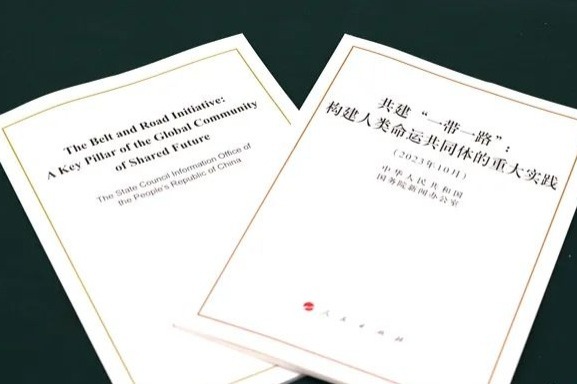
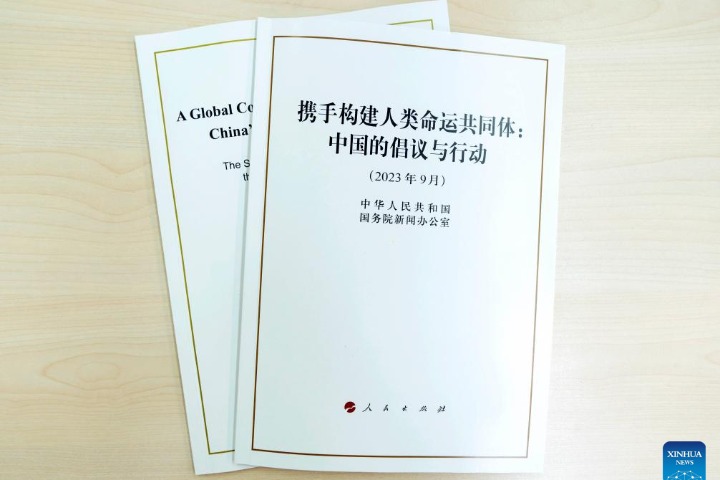
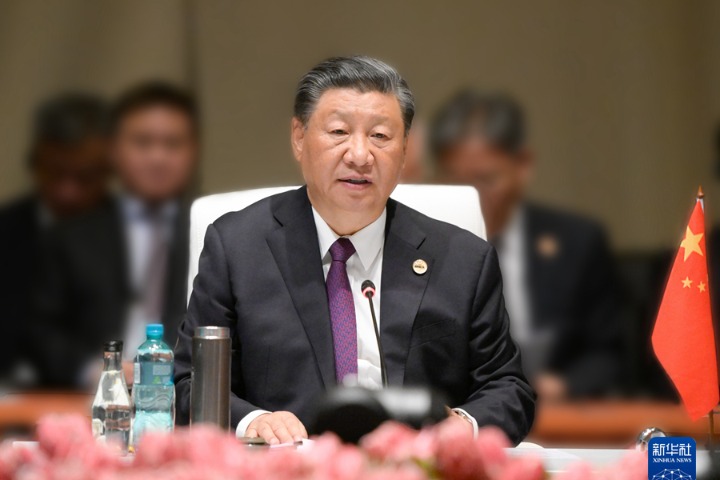



 英语点津微信
英语点津微信 双语小程序
双语小程序